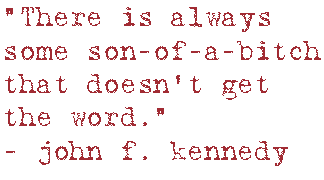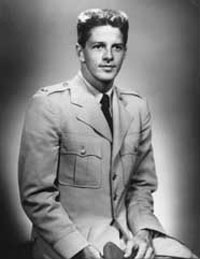Saturday, 27 October 1962
Around 9:00 a.m. in Washington, Radio Moscow (5:00 p.m. Moscow time) began broadcasting the letter that the American Embassy in Moscow just received. In this letter, Khrushchev made no reference to his earlier letter and instead publicly declared that “We are willing to remove  from Cuba the means which you regard as offensive.” In exchange, Khrushchev asked that “the United States… will remove its analogous means from Turkey.” Further, Khrushchev promised to respect Turkish sovereignty and borders and thus not to invade or threaten Turkey in exchange for similar pledges from the United States regarding Cuba.96
from Cuba the means which you regard as offensive.” In exchange, Khrushchev asked that “the United States… will remove its analogous means from Turkey.” Further, Khrushchev promised to respect Turkish sovereignty and borders and thus not to invade or threaten Turkey in exchange for similar pledges from the United States regarding Cuba.96
This represented one last try by the Soviet Union to obtain some measure of negotiating success from this crisis.
After much debate within the Executive Committee, Kennedy replied to Khrushchev at 8:00 p.m. (4:00 a.m., 28 October in Moscow). In this letter, he made scant reference to the 27 October broadcast as he required that work must cease on the weapons sites in Cuba. Further, he gave Stevenson the authority to reach a settlement based on the 26 October letter, namely to remove the weapons from Cuba under UN supervision and in exchange the US would remove the quarantine and “give assurances against an invasion of Cuba.”
He noted Khrushchev’s proposal in his 27 October letter to reduce “other armaments” and indicated that the “United States is very much interested in reducing tensions and halting the arms race” but clarified that “cessation of work on missile sites in Cuba” is the “first ingredient.”97
Castro responded to U Thant’s letter of 26 October asking for cessation of work by declaring Cuba “would be prepared to accept the compromises that you request… provided that at the same time, while negotiations are in progress, the US govt (sic) desists from threats and aggressive actions against Cuba including the naval blockade of our country.” Castro went further to invite U Thant to Cuba “should you consider it useful to the cause of peace.”98
Castro was not aware of the status of the negotiations between the Unite States and the Soviet Union. His actions and demands suggest he was hoping for a static situation in which he could leverage the crisis for a key concession – a pledge of non-hostility from the United States. The events that occurred beyond Castro’s purview precluded his ability to successfully leverage the situation.
Castro’s elevation of his air defense response capability led to the only direct casualty of the crisis and a potential catastrophe. Around noon in Cuba Major Rudolf Anderson was shot down in his U2 while conducting a  photoreconnaissance mission. Anderson’s death prompted the military to call for retaliatory measures and represented the most tenuous time of the entire crisis.99
photoreconnaissance mission. Anderson’s death prompted the military to call for retaliatory measures and represented the most tenuous time of the entire crisis.99
Further complicating the situation was the report from SAC that one of its U2 aircraft wandered into Soviet airspace off the coast of Alaska en route to the north pole to conduct “routine air sampling”. MIG fighters were scrambled to intercept and American escort fighters with nuclear tipped missiles rushed to the U2’s aid to escort it back to Alaska. Aware of the near miss that had just occurred, Kennedy quipped, “There is always some son-of-a-bitch who doesn’t get the word.”100
As the text of President’ Kennedy’s response to Khrushchev was being delivered, Robert Kennedy and Ambassador Dobrynin met at the Justice Department at 7:45 p.m. (2:45 a.m. in Moscow). In that meeting, Kennedy issued an ultimatum to Dobrynin, “We had to have a commitment by tomorrow that those bases would be removed.” Robert Kennedy relayed the sustentative parts of the letter being transmitted to Khrushchev and reiterated that Turkey was not a part of this deal. Kennedy opened a door however, by saying “President Kennedy had been anxious to remove those missiles from Turkey and Italy for a long period of time… it was our judgment that, within a short time after this crisis was over, those missiles would be gone.” Robert Kennedy stressed that “we needed an answer immediately from the Soviet Union. I said we must have it the next day.”101
Diplomatically, this was the endgame. The United States’ final offer was on the table and there was no more room for stalling. That point had to be relayed to Khrushchev clearly. Khrushchev had to respond quickly to prevent a catastrophe.
General Pliyev was aware that Castro ordered his air defense units to fire on US aircraft and that he believed an invasion was set for the next twenty-four hours. He informed the Soviet Ministry of Defense at 9:00 a.m. in Moscow (2:00 a.m. in Havana) that “We have decided that in the event of a U.S. air attack on our installations, we will employ all available means of air defense.” By 11:00 a.m. in Moscow, Malinovsky responded by saying “I propose to confirm” as he informed the Kremlin. At noon, Khrushchev approved the order.102
That afternoon in Moscow (morning in Cuba) the Presidium considered their military options and moved to relax the potential for mishap. Since 22 October, Pliyev had the authority to use tactical nuclear weapons to defend his forces. On 27 October, that was rescinded by the Presidium, “You are forbidden to apply nuclear warheads to FKR, Luna, Il-28s without authorization from Moscow.”
Also that afternoon, John Scali met again with Feklisov to inquire of him why there were confusing messages from the Soviet Union. Feklisov blamed it on communications problems and, according to Stern, “pleaded with Scali to persuade U.S. officials that the Soviet Union was serious about reaching a settlement.” 103

